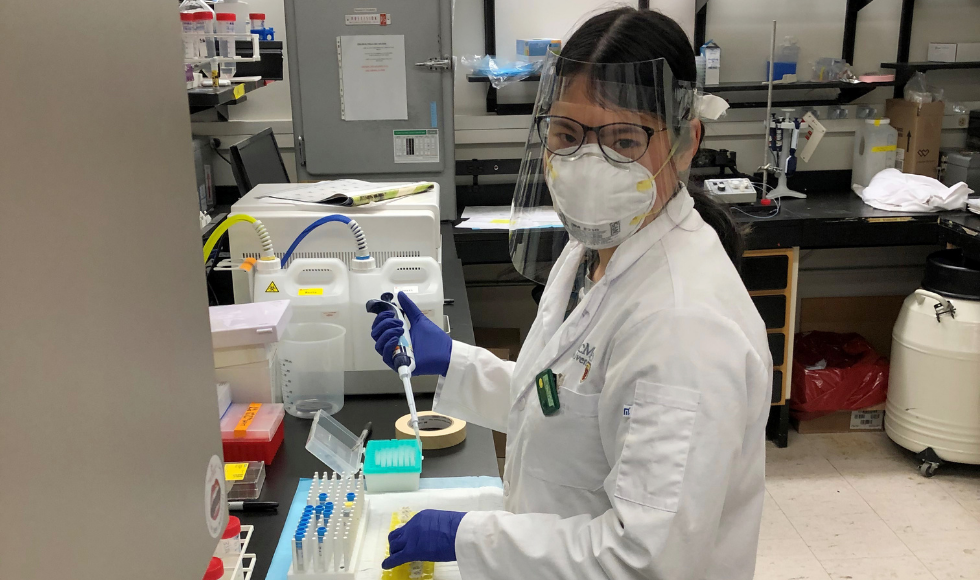McMaster researcher wins young leader award

BY FRAM DINSHAW
MAY 3, 2022
McMaster University researcher Angela Huynh has won the Canadian Medical Association (CMA)’s Award for Young Leaders for her work in uncovering vaccine-related blood clots.
In the spring of 2021, Huynh investigated the causes of rare but life-threatening blood clots caused by the AstraZeneca vaccine for COVID-19, alongside researchers Ishac Nazy, Donald Arnold and John Kelton of the McMaster Platelet Immunology Laboratory (MPIL). She developed and published techniques to measure the type and levels of antibodies that lead to vaccine-induced immune thrombotic thrombocytopenia (VITT).
“I honestly feel a mixture of honoured and lucky,” said Huynh, who is now a third-year medical student at Western University and still works at the MPIL.
“I have always wanted to put the health of others first. I have no excuse to sit at home when I should be helping out in any way I can.”
Huynh had previously worked in the lab for her PhD in medical sciences and returned to the McMaster Platelet Immunology Laboratory in early 2020 to help investigate the immune response to COVID-19 during the pandemic’s early days.
“It is very few times in your career that you run into a student who is so hungry for success that you know their hunger would never be tamed,” said Nazy, senior author on the VITT study and the MPIL’s scientific director, who supervised Huynh during her PhD at McMaster.
“That is how Angela has always been and it is why when a person like Angela calls for some work you just say yes.”
Nazy said Huynh capitalized on the techniques and expertise gained during her PhD to discover the mechanism of clot formation after COVID-19 vaccines.
“It was an unbelievable journey of six to eight weeks when it seemed like Angela was working around the clock and producing data, until the study got published in the journal Nature,” said Nazy.
“It takes an extraordinary person that can look at the science without fear and have the confidence and desire to get it done.”
Dawn Bowdish, who supervised Huynh’s undergraduate thesis in integrated science and biochemistry, said her former student’s research was also instrumental in the decision to provide booster shots for long-term care (LTC) home residents.
Huynh’s data showed that antibody levels dropped about five months after LTC residents received their second COVID-19 vaccine.
Bowdish, a professor of the Department Medicine, described her former student as “a gifted and creative scientist who was able to make a tangible and important contribution to the COVID effort.”
In addition to working and studying full-time, Bowdish said Huynh was a mentor to less experienced MPIL colleagues.
Huynh’s honour is one of six national Awards for Young Leaders given by the CMA each year, including to two medical students, two residents and two early-career physicians.
For more information on the CMA Young Leaders Awards, please visit https://www.cma.ca/awards-young-leaders.
MILO